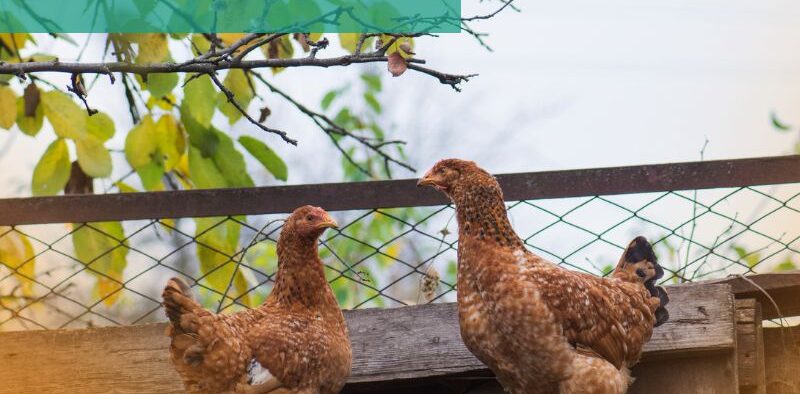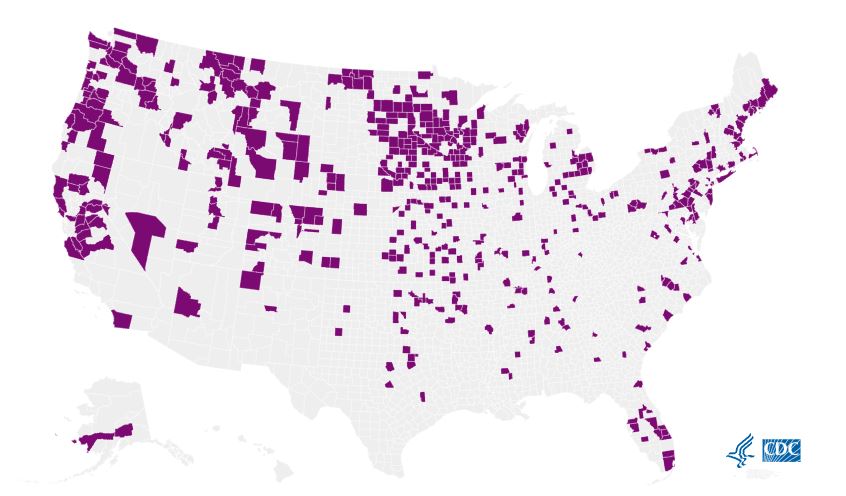Bird Flu: Understanding Its Impact on Backyard Chickens
Share

Bird flu, also known as avian influenza, might sound like something out of a movie, but it’s a real concern for both commercial poultry farms and backyard chicken enthusiasts. This highly contagious respiratory illness in birds can have a devastating impact on flocks, and while the risk to humans is generally low, understanding bird flu is crucial for protecting your feathered friends and your own health.
Avian influenza is caused by influenza A viruses. Wild birds, particularly waterfowl like ducks and geese, can carry these viruses without showing any signs of illness. However, these viruses can be deadly to domesticated poultry like chickens, turkeys, and ducks. There are different strains of bird flu, with highly pathogenic avian influenza (HPAI) viruses being the most concerning as they cause severe disease and high mortality rates in poultry.
While not a major threat to humans, bird flu can infect domestic poultry and other bird and animal species, sometimes with devastating consequences.
How Can Backyard Chickens Get Bird Flu?
Backyard chickens can become infected with thi illness in several ways:
- Direct contact: Infected wild birds can transmit the virus to your chickens through close contact, such as sharing a feeder or water source.
- Contaminated environment: The virus can survive for weeks in the environment, so your chickens can become infected through contact with droppings, feathers, or contaminated soil from infected birds.
- People: While less likely, you can unknowingly carry the virus on your clothes or shoes and introduce it to your flock.
Signs of Bird Flu in Chickens
Early detection is crucial to prevent the spread of bird flu. Here are some signs to watch out for in your chickens:
- Sudden death
- Respiratory problems: coughing, sneezing, difficulty breathing
- Lack of energy and appetite
- Swollen wattles and combs
- Purple discoloration of legs and feet
- Diarrhea
- Nervous signs: tremors, incoordination
What to Do if You Suspect Bird Flu
If you suspect your chickens have avian influenza, it’s essential to act quickly. Here are the steps to take:
- Isolate your flock immediately. Don’t allow visitors, and restrict your own contact with the chickens.
- Contact your local veterinarian or state veterinarian’s office. They will advise you on next steps, which may include testing and potential culling of the flock.
- Practice strict biosecurity measures. This includes disinfecting your coop, equipment, and clothes thoroughly.
This map shows recent activity of bird flu among hobby flocks. Check the CDC for active maps and information.

Can Avian Influenza Spread to Humans?
Bird flu viruses can rarely infect humans, primarily through close and prolonged contact with infected birds or contaminated environments. The risk to humans from properly handling poultry meat or eating properly cooked poultry products is considered extremely low.
While bird flu rarely jumps to humans, sporadic cases have occurred throughout history. The most concerning strain for human transmission is H5N1, responsible for numerous outbreaks affecting poultry workers and close contacts. However, the risk of widespread human-to-human transmission remains low.
Bird flu is a complex issue with implications for both animal and human health. While the risk of human transmission is low, vigilance and preventative measures are crucial to minimize the impact of this disease. By understanding the virus, respecting our feathered neighbors, and implementing responsible practices, we can protect ourselves and ensure the well-being of birds worldwide.
How to Protect Your Backyard Flock from Bird Flu
Here are some essential biosecurity measures to keep your backyard chickens safe from avian influenza:
- Minimize contact with wild birds: Keep your coop and run well-maintained and predator-proof to discourage wild birds from entering.
- Practice good hygiene: Wash your hands thoroughly with soap and water before and after entering your coop. Disinfect your shoes and clothes regularly.
- Practice Biosecurity: Maintaining proper hygiene and sanitation practices in poultry farms and around domestic birds is crucial to prevent the spread of the virus
- Keep your coop clean and dry: Regularly remove manure and bedding to prevent the buildup of moisture, which can help the virus survive.
- Don’t introduce new birds to your flock without quarantining them first.
- Stay informed: Monitor updates from the USDA and your state veterinarian’s office about bird flu activity in your area
- Vaccination: Vaccinating poultry can significantly reduce the risk of infection and protect both birds and humans.
- Vigilance: Reporting any unusual bird deaths or illnesses to veterinary authorities is essential for early detection and control of potential outbreaks.
Bird flu is a serious threat to poultry, but responsible backyard chicken owners can take steps to protect their flocks. By practicing good biosecurity measures, staying informed, and acting quickly if you suspect bird flu, you can help keep your chickens healthy and minimize the risk of transmission to yourself and others. Remember, a healthy and happy flock is a joy to raise, and with a little vigilance, you can ensure your backyard chickens thrive for years to come.
Additional Resources
- U.S. Department of Agriculture (USDA) Animal and Plant Health Inspection Service (APHIS)
- Centers for Disease Control and Prevention (CDC)
- American Veterinary Medical Association (AVMA)
- The World Health Organization (WHO) also provides global updates and information on avian influenza
You May Also Enjoy:










